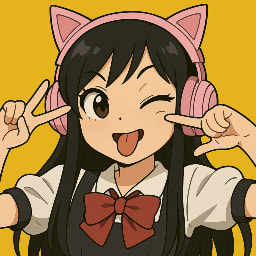
Akira: Power, Identity, and Tetsuo’s Inner Collapse
As a symbol of youthful rebellion, latent power, and existential angst, Tetsuo embodies the complexities of a teenager grappling with identity amidst a backdrop of societal chaos. His transformative journey serves as a lens through which viewers can explore themes of power dynamics, friendship, and the fragile nature of humanity. This character study delves into Tetsuo's personality, motivations, and conflicts while examining his unique position in the anime landscape.
Tetsuo's character is initially introduced as a seemingly unremarkable member of a biker gang, living in the shadows of his friend Kaneda. This juxtaposition establishes a foundation for his contrasting personality traits. On one hand, Tetsuo is impulsive, prone to fits of rage, and deeply insecure about his place in the world. His desire for recognition and validation pushes him toward destructive behaviors, which ultimately catalyze the emergence of his psychic abilities. On the other hand, his vulnerability is woven into the fabric of his character. Throughout the narrative, we witness moments of longing for connection and understanding, indicative of a person wrestling with their identity. This dichotomy makes Tetsuo an incredibly relatable character, as many viewers can empathize with his struggle to find purpose amid chaos.
Tetsuo's motivations stem from an innate desire to assert himself in a world that feels confining. Early in the series, his growing psychic powers are a double-edged sword. While they offer him a semblance of control and superiority, they also intensify his internal conflicts. The more he gains power, the more alienated he becomes from his friends, particularly Kaneda. This deterioration of their bond serves as a poignant reflection of Tetsuo's psychological descent, highlighting the fear of losing one's humanity in the pursuit of power. Tetsuo's arc, therefore, invites viewers to consider the dangers of unchecked ambition and the existential weight that accompanies immense power—ultimately leading to his tragic inner collapse.
At the center of "Akira," Tetsuo's character is crucial for understanding not only the narrative but also the thematic layers woven throughout the story. His transformation can be viewed as an allegory for the struggle against one's darker impulses. As he seeks to control his psychic abilities, he inadvertently becomes a puppet of his own emotions, culminating in a tumultuous exploration of identity. Tetsuo's turmoil illustrates the broader societal anxieties present in the film, including post-war disillusionment and the search for meaning in a rapidly evolving world. His character acts as a microcosm of the tension between individuality and societal expectations, making him an essential conduit for the story's exploration of dystopian themes.
What sets Tetsuo apart from many anime characters is the profound psychological depth he embodies. In contrast to typical "hero" archetypes, Tetsuo's journey is marked by a tragic fall rather than a redemptive rise. The complexity of his character challenges conventional narratives of triumph over adversity, displaying instead the fragility of the human spirit when it confronts overwhelming forces. This nuanced portrayal serves as a departure from the hero’s journey trope, making Tetsuo a character whose flaws resonate deeply with audiences. His transformation from a frightened youth to a powerful, uncontrollable force captures the duality of human nature—both its potential for greatness and its susceptibility to self-destruction.
Tetsuo's impact on the anime landscape cannot be overstated. His character has inspired countless discussions regarding the portrayal of mental illness, the consequences of power, and the nuances of identity. In the era of late 1980s anime, Tetsuo emerged as a pivotal figure, marking a shift toward more complex characters who eschewed traditional heroic narratives in favor of darker, more introspective arcs. His legacy extends into modern-day anime, paving the way for characters who similarly grapple with their identities and the burdens of power. Moreover, Tetsuo's influence can be seen in countless works that explore the psychological ramifications of power, from "Neon Genesis Evangelion" to "Tokyo Ghoul," testifying to the lasting relevance of his character.
It is clear that Tetsuo's journey is one of both tragedy and depth. From a frightened teenager to a being of immense power and consequence, Tetsuo serves as a cautionary tale about the nature of humanity and the complexities of self-identity. His story resonates with anyone who has ever felt the conflict between power and vulnerability, making him an eternal figure in the anime pantheon. As we reflect upon Tetsuo’s narrative, we are reminded of the delicate balance between ambition and the corrupting influence of unchecked power—a lesson that continues to find relevance in our ever-evolving world.
Our Comics Newsletter
Join the newsletter to receive the latest updates in your inbox.



